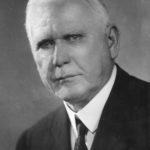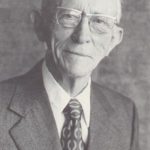Description
BY THE WAY
MEDITATIONS of a CHRISTIAN PILGRIM
by
VANCE HAVNER
2015
- DETOURS
- THE LADY IN THE KITCHEN
- THE ВОY
- TEDDY ROOSEVELT
- JUMPING THE GULLY
- THE LATCH ON THE OLD KITCHEN DOOR
- NOTES AT NYACK
- UNDERGROUND MOVEMENT
- WHEN YOU CAN’T SLEEP
- SUNSET IN SEBRING
- CRANKING THE FORD
- SPRING IN THE PARK
- PREACHER UNWANTED
- THE CORNER MAILBOX
- SHEETS
- FINISHING WITH JOY
- IS IT WORTH IT?
- ALONG THE RIVER
- BIFOCALS
- MONTROSE MEDITATIONS
- THE PASSING OF JOHN BROWN
- LITTLE ВОY ON A CORNER
- ON TAKING THINGS FOR GRANTED
- ROCKING CHAIRS
- OVER FORTY
- WAY BACK IN THE HILLS
- THE MOUNTAIN IN THE MIST
- “I LIVE IN THAT BOOK”
- TRAVELING HOME
FOREWORD
This little bundle of meditations takes its title from the fact that the writer is an itinerant preacher. These reflections have been set down in all sorts of places and under diverse conditions as the author has journeyed over the land. Then, of he is on a still greater journey as a stranger and pilgrim on the earth looking for a city whose builder and maker is God. Though never tired of the way, he is often tired on the way and sometimes while resting by the way likes to scribble a little.
The title is often found in the Word. Many interesting things happened “by the way” if one cares to look them up.
Finally, it is hoped that other fellow travelers who sometimes find the journey too great for them, as did Elijah, may get an extra “lift” from what has blessed another and, because it has blessed him, is herein recorded. May something in these pages warm somebody’s heart after that pattern of long ago: “Did not our heart bum within us, while he talked with us by the way, and while he opened to us the scriptures?”
V.H.
Greensboro, N. C.
BY THE WAY
I. DETOURS
“The detour is always rougher than the main road.” Ask any tourist. Have you not been riding along the highway making good speed, with the roadside signs constantly reminding you that you are on the right road to your destination, when suddenly ahead there looms a disturbing arrow? A bridge is down, the road is undergoing repairs, you must head down a pasture lane and over a make-shift trestle and through several miles of dust and along back streets. Your liver is almost shaken loose, your disposition is ruined, time is lost, and at last you emerge from this wilderness sojourn firmly settled in your mind that detours are your pet peeve.
But, alas, we seem to be fond of them in our spiritual experience. “Prone to wander, Lord, I feel it, prone to leave the God I love” – indeed, we are, although all the “detourists” of history shout the warning of bitter experience.
Ask Abraham. Friend of God that he was, he took a side trip into Egypt in a time of famine. He got into embarrassing predicaments, told a falsehood, and was ordered out of the land. What a miserable testimony for the father of the faithful! And we fare no better when, in a day of testing, we turn to Egypt for help and fall back on the resources of this world.
Ask Jacob. From Bethel he slipped down to Shalem. Dinah, his daughter, got into society, and the family got into trouble, and at last Jacob went back to Bethel, where he should have been all the time. No dweller at Bethel has any business in Shalem.
Ask Lot. He beheld the plain of Jordan, pitched his tent toward Sodom. What if he did sit in the gate and rise in the world? He lost his influence with his family, had to flee from the accursed city, and died in shame. He never really got going on the highway again. It was a sad and costly detour.
Ask Jonah. “The word of the Lord came unto Jonah the son of Amittai, saying, Arise, go to Nineveh,” and Jonah promptly headed for Joppa instead. He paid the fare and embarked for Tarshish but, like all who buy tickets from the devil, reached only trouble instead. A circuitous route he took to get back into the highway of God’s will, and he warns all boat- rockers, who not only trouble themselves but all who travel with them until they return to the Lord their God.
Ask Peter. What a detour he took that miserable night when he who had boasted he would be a martyr became a mollycoddle! What wretched days he passed along the rough, rocky road of an unfaithful disciple! And when he finally reached the highway again at Tiberias he never forgot that costly side trip.
“The detour is always rougher than the main road.” We take the detour as motorists because we have to. As Christians we take it because we want to. But, thank God, Abraham and Jacob and Jonah and Peter did not die on the detour. And if you are a “detourist” the Lord is looking for you, even as long ago the angel said, “Go tell his disciples and Peter…”
2. THE LADY IN THE KITCHEN
I can hear her back in the kitchen. There is an occasional rattle of pans and dishes. After awhile dinner will be ready and there will be a gracious presence to greet me as I go in to eat things I like, fixed as I like them. After weeks on the road eating in one Public (Pto) Main(e) Dining Room after another, I get to where everything tastes alike. But several days at home restores me. For I found, a little late but “better late than never,” that species of vanishing American, a good wife who can cook. Wives of yesterday could cook; now they just go to school and study cooking. Dietetics, home economics – you can’t live on that.
I found more than that. An old-fashioned girl who made up her mind years ago not to follow the crowd, a Quaker, too, with all that normally means in conviction and character, from whose dictionary “duty” and “discipline” and “responsibility” had not been dropped. Nor do I want you to envision a drab figure in the clothes of yesterday. It takes something amounting almost to genius for a preacher’s wife to go shopping for clothes and emerge later from her dressing-room looking like neither a dummy of the long ago in the Smithsonian Institution nor, on the other hand, a modernized resident of Sodom or Gomorrah. I say it takes something akin to genius, but the Lady in the Kitchen has it, and from the first new hat all done up with roses she has managed to crown her head with a smart top-piece that still looks like a hat
The woman who marries a traveling preacher would do well to engage in a little extra praying. Marrying a preacher, whether stationary or peripatetic, puts any poor woman on the spot. She will be scrutinized far more than ever her spouse will be, and anything she says or does will be wrong to some people. Add to the trials that come any preacher’s way the career of a rolling stone and a woman will think more than twice before she signs up for a life that courts acute indigestion by day and insomnia by night.
But the Lady in the Kitchen has done it. She has sat in church auditoriums all over America and listened incognito while her husband was being discussed around her. And she has picked up some gems, if you will believe me. Some things she has heard might have tempted me to pride but the Lord always provides something on the debit side to save my hatband from expansion. She has had personal workers try to get her up to the mourner’s bench. She has been asked countless times what she thought of the visiting preacher. She has heard all her husband’s stories and starts smiling ’way before I get to the smiling place.
She has done it all with good grace and I know the reason why. No amount of good nature or fortitude can equip anyone for such a mission. It is a divine calling and requires divine strength. More than one poor man has ventured into it with a woman who did it not as unto the Lord. Only friction and heartbreak can follow. No wonder Paul advised marriage only in the Lord. Paul did not “lead about a wife” as did Peter, but he sensed that just any woman cannot be so led about and come out smiling.
But the Lady in the Kitchen summons me. I’ll go see “what’s cooking.”
3. THE ВОY
His dad, a brilliant university professor, died after a short illness and left a bright, handsome youngster not yet five years old. My heart first went out to him when, on the day of the funeral, he asked several of the attending notables, “Where is my daddy?” All of us sat speechless, with lumps in our throats.
Then he turned to me and there began the happy companionship of “Unca Vance and us” as he calls it. Exploring hill and dale, catching crawfishes and butterflies, climbing Pilot Mountain and Chimney Rock, taking our first plane ride together – what adventures we have had! Imagination has transformed plainest spots into fairylands, and the wand of childish fancy has made the most prosaic wilderness blossom as the rose. Curled up in my arm long past his bedtime, he has prodded me from one animal story to another, from ant-eaters to zebras. We just about know Uncle Remus “by heart.” And it really is the end of a perfect day when we finish with a Bible story and a prayer.
What a precious diversion he is! He certainly turns the channel of my thoughts out of their ruts. Hitherto, when I should have been relaxing, I have all too often been inwardly composing sermons, but who could do that now out walking under the constant barrage of his “What?” and “Why?” One must needs be a walking encyclopedia to answer that boy. But I come back from our tramps with my mind changed and rested.
I hope I have helped fill his days with happiness and made up just a mite of his great loss. I know he has taught me many precious things. I have watched his wide-eyed wonder at every turn of the road and I have thought of our Saviour’s word about being converted and becoming as little children. Then I have prayed, “Lord, let me never get used to living. Keep afresh in my heart a childlike wonder. Above all, let me never get used to being a Christian. Let me walk with a constant sense of surprise and expectancy. Why should there be a dull moment in the life of a Christian when every hour is a fresh adventure in faith and love?”
Gypsy Smith, the famous evangelist, said, “I have never lost the wonder.” He carried the heart of a child through eighty-odd years. Right there so many of us fail. Our love waxes cold, we leave our first love, we become lukewarm, we get over it. We become more like critics than children, childish but not childlike. It is the plague of our Christian experience. The wonder wears away and we become grown-up and fed-up, dry and stale. Yet His deepest secrets are hid from the wise and prudent and revealed unto babes.
Yes, “the Boy” has warmed his uncle’s heart. And often as he sits beside me while we rest somewhere on our jaunts, I am reminded of his implicit trust in me. He has not the slightest idea where he is, and if he were alone he would be panicky with fright. But he knows that I know and he has not a worry. May I so trust my Father in heaven that, while often I do not know just where I am or what to do, He knows and His grace that has brought me safe thus far will lead me safely home.
4. TEDDY ROOSEVELT
The outstanding hero of my boyhood was Theodore Roosevelt. I reveled in the exploits of this apostle of the strenuous life. Particularly did I thrill over his African hunting trip and his triumphant journey home, meeting on the way the bigwigs of Europe. His love of the outdoors, his tremendous zest for living, and his boundless enthusiasm captured my imagination. Of his politics I knew nothing and I cared nothing, whether he stayed Republican or turned Bull Moose. To me he was a colorful character and a real American.
Teddy Roosevelt symbolized an era that may be said to have ended with the First World War. About the time he departed this life something went out from America and it has never returned. Up to that time, things were more or less old-fashioned. Progress (?) had not yet driven us crazy. We could not travel quite so fast. There was still time to live. The old rugged virtues were still preached and practised. Husbands and wives generally managed to live together. Men still believed the Bible, or at least they respected it. But in 1914 the world went crazy and it has been a madhouse ever since.
Teddy Roosevelt himself tasted bitter waters in his last years. The loss of Quentin, ill health, comparative obscurity while Woodrow Wilson held the spotlight, and then his passing at Sagamore Hill, all this epitomized the end of a good old era and the beginning of the Great Insanity. Soon Wilson too must know a broken body, and, like Roosevelt, die on the sidelines to which a generation that knew not whither it went had shunted him.
I recall that the great age of evangelism passed about this time. Billy Sunday was crowding the multitudes into the tabernacles and calling them down the sawdust trail. But soon he was to sense that a new moral and spiritual climate had settled on the land: the modernists had arrived; evolution was bidding us on from protoplasm to Paradise; man had begun to humanize God and deify himself; higher criticism was denying the Scriptures, minimizing sin, reasoning away the atonement and air-conditioning hell. We deemed it possible to achieve our own salvation.
Teddy Roosevelt seemed to sum up that pre-World-War-I America. Go to your public library and dig up the magazines of that era. An hour in that leisurely age will awaken you to how we have turned maniacs since. Yes, something went out of us along about then, and it has not returned. We junked the homely virtues, went on a spree, and it is just about “curtains” for a civilization that has been in the gutter ever since.
5. JUMPING THE GULLY
Down in the pasture back home there used to be a gully, a ravine worn by erosion in that familiar red dirt. We rural youngsters vied with each other in gully-jumping. The idea was to get across in one leap – and you had better get over in one leap for either you went over or in!
The secret was in getting a good running start and then going over at the very first try. If you ran up to the brink and then had your courage fail so that you had to go back and start all over, that was disastrous. It would be just twice as hard to do next time.
Gully-jumping illustrates a very vital principle in the Christian life of faith. Nothing is more disastrous than to study faith, analyze faith, make noble resolves of faith, but never actually make the leap of faith. It is like running up to the gully and looking over again and again but never jumping. And each time the process is repeated, it becomes more difficult to make the leap of full committal to the truth one knows.
Satan gets many a soul into this plight. One may study the truth and become expert in it until he fancies that knowledge is experience. He becomes adept at handling the phraseology, knows all the answers, can tell others the “steps,” – and yet never has “jumped the gully.” It is a wretched state of indecision and the longer it lasts, the more confirmed it becomes, until only the most radical and drastic jump can break the vicious cycle.
Our fathers sang “On Jordan’s Stormy Banks I Stand,” and they meant well. We are not disposed to quibble over the matter nor to rob anyone of the joy they get in anticipating heaven through that old song. But, really, the Israelites were not meant to stand on Jordan’s banks and gaze wishfully into the Promised Land. They were to go in and possess it. So Canaan does not represent heaven but the victorious Christian life here and now, and too many saints have never got over Jordan to possess their possessions. Which is only another way of saying that they have never “jumped the gully.”
Herein lies the danger of being hearers of the Word but not doers. We deceive ourselves, we keep coming to the verge of the life of faith but we never make the leap. It is the peril of those spoken of again in Scriptures as “ever learning and never able to come to a knowledge of the truth.” Nothing is more deceptive. It would be better not to know the truth than to know and not do, for James says that is a sin.
We do not get over the gully by feeling like it or by thinking about it. We have to call on the will and jump. Jesus said that the man who willed to do God’s will would know of the doctrine whether it were of God or simply Jesus speaking for Himself. The life of faith begins when knowledge is translated into action and one commits himself entirely to the truth he knows. But no man is in a worse state than he who knows but wears himself out running up to the brink of duty without ever “jumping the gully.” And, mind you, no man ever jumped toward Christ but found beneath him the Everlasting Arms.





Reviews
There are no reviews yet.